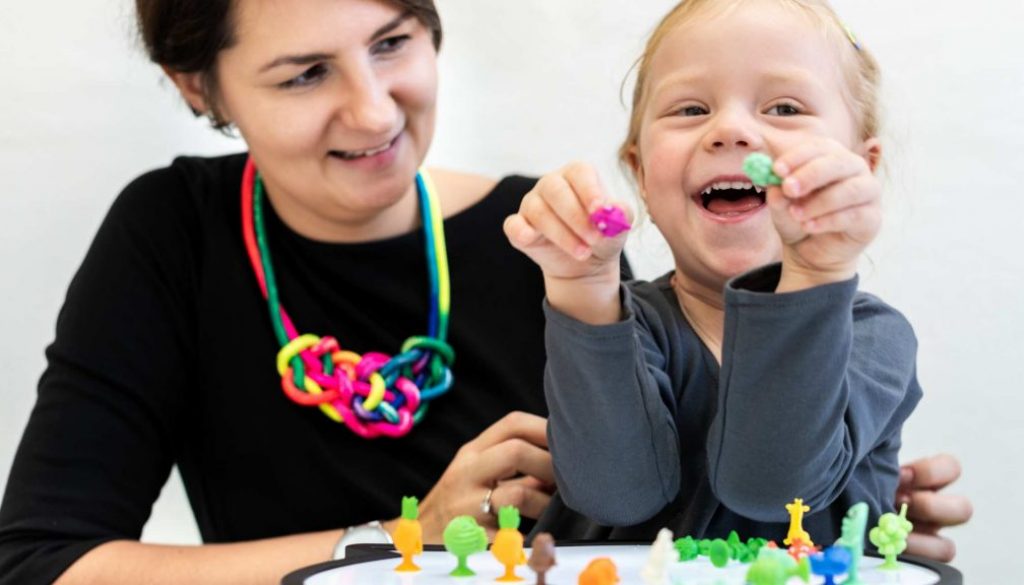As parents, we always strive to provide the best care and support for our children. However, sometimes we may notice certain challenges or delays in their development that require professional intervention. Occupational therapy (OT) is a specialised field that focuses on helping individuals, including children, develop the skills necessary to engage in everyday activities. In this article, we will discuss five signs that indicate your child may benefit from occupational therapy and explore how OT can positively impact children of different age groups.

Fine Motor Skill Challenges
Fine motor skills involve the coordination of small muscles in the hands and fingers, which are crucial for activities like writing, using scissors, and tying shoelaces. If your child struggles with these tasks, it may be a sign that they need occupational therapy. An occupational therapist can design activities and exercises that improve fine motor skills, enhancing your child’s ability to perform daily tasks and excel academically.
Sensory Processing Issues
Children with sensory processing issues may have difficulty processing and responding to sensory stimuli, such as touch, sound, and movement. They may be oversensitive or under sensitive to certain sensations, leading to meltdowns, avoidance behaviours, or difficulty concentrating. Occupational therapy offers sensory integration techniques to help children regulate their responses to sensory information, facilitating improved attention, self-regulation, and social interactions.

Challenges with Daily Living Skills
Some children may struggle with self-care activities like dressing, feeding, or grooming. If your child exhibits delays in these areas beyond what is typical for their age group, occupational therapy can be highly beneficial. OT practitioners can address these challenges through adaptive strategies, exercises, and environmental modifications to enhance your child’s independence and overall quality of life.
Poor Gross Motor Skills
Gross motor skills involve the coordination of larger muscles in the body and are essential for activities such as running, jumping, and playing sports. If your child demonstrates difficulties with balance, coordination, or movement, occupational therapy can help. Through therapeutic exercises, strengthening activities, and coordination drills, an occupational therapist can improve your child’s gross motor skills, boosting their physical abilities and confidence.
Attention and Focus Issues
Many children struggle with attention and focus, making it challenging for them to concentrate in school or complete tasks. Occupational therapy employs various techniques, such as sensory-based interventions, visual aids, and organisational strategies, to enhance attention and focus. By addressing these underlying issues, occupational therapists empower children to succeed academically and engage effectively in various environments.

Occupational therapy offers tailored benefits for children at different stages of development
Early Childhood (0-5 years): OT supports infants and toddlers in achieving crucial developmental milestones, such as rolling, crawling, and grasping objects. It also helps identify and address early signs of sensory or motor delays, promoting healthy development.
Elementary School (6-11 years): Occupational therapy can enhance fine motor skills, handwriting abilities, social interactions, and self-regulation. It helps children succeed in school, build friendships, and develop important life skills.
Adolescence (12-18 years): Occupational therapy assists teenagers in developing independence, self-care skills, and effective time management. It addresses challenges related to sensory sensitivities, executive function, and transition planning for higher education or employment.
Occupational therapy plays a vital role in supporting children with various challenges, from fine motor skill difficulties to sensory processing issues. By recognising the signs that indicate your child may need occupational therapy and understanding the benefits it offers across different age groups, you can take proactive steps towards providing your child with the necessary support and resources for their optimal development and overall well-being. Consult with a qualified occupational therapist to determine if occupational therapy is suitable for your child’s unique needs, and unlock their full potential.
At Correlate Connections we offer Occupational Therapy for various age groups. Get in touch today to learn more and book a session.
Get help where needed
Contact us to receive more information about your options for support and funding also OUTSIDE the NDIS in the Campbelltown area, Sydney NSW.
Got questions? Feel free to give us a call anytime, we’re here to help.
Read about the 6 Benefits of NDIS Support Coordination.





